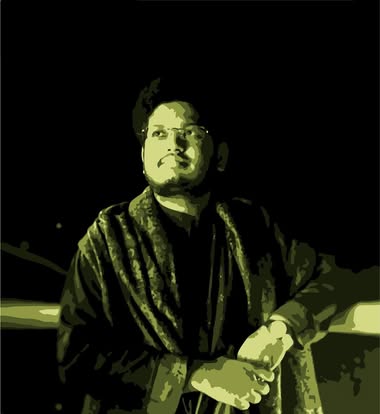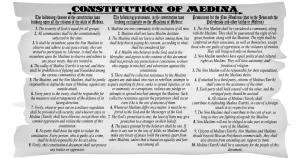Pegasus is a spyware program developed by the Israeli firm NSO Group that can infiltrate, control, and harvest personal and location data from mobile phones. Governments all over the world have used it to spy on journalists, activists, politicians, and even heads of state like Emmanuel Macron, Cyril Ramaphosa, and Imran Khan. An investigation by 17 news organizations discovered that over 1,000 people in 50 countries were allegedly chosen by NSO clients for potential surveillance since 2016. Human rights groups, media organizations, and governments have filed lawsuits, blacklisted NSO, and criticized it for being amoral, repressive, and unethical. NSO has denied any wrongdoing and stated that its products are only sold to state security agencies with the approval of Israel’s defense ministry.
Pegasus is a serious threat to privacy, security, and human rights. It enables governments and other actors to spy on their critics and opponents without oversight or accountability. It also undermines trust and confidence in digital technologies, which are critical for communication, information, and expression in today’s world. Pegasus has recently been in the news for all the wrong reasons, and this article aims to enlighten you on what you need to know about Pegasus spyware.
What is Pegasus Spyware?
Pegasus is a powerful spyware developed by NSO Group, an Israeli company that sells cyberweapons to governments and law enforcement agencies around the world. Pegasus can infect smartphones running iOS or Android operating systems without the user’s knowledge and give attackers complete access to the device’s data, communications, camera, microphone, and location. Pegasus can also bypass encryption and collect passwords and Wi-Fi credentials. Once Pegasus is installed on the device, it can monitor all activities on the device, including internet browsing, messaging apps, and social media.
The spyware was developed by the NSO Group, an Israeli technology firm that specializes in surveillance and cybersecurity. NSO stands for Niv, Shalev, and Omri, the names of the company’s founders. They are an Israeli cyber-intelligence firm that develops and sells spyware products, such as Pegasus, to government agencies. NSO Group claims that its technology is only used to investigate terrorism and crime, but it has been accused of enabling human rights abuses and unlawful surveillance by its clients.
What is Veganism? Why veganism is a misconception?
In 2016, Pegasus was first discovered when a human rights activist in the United Arab Emirates received a suspicious text message with a link that would have installed the spyware on his iPhone. Since then, Pegasus has been used to target journalists, activists, lawyers, politicians, and dissidents in dozens of countries, including India, Mexico, Morocco, Saudi Arabia, and Hungary.
Despite an ostensible ban on accepting bids from Israel, Bangladesh purchased at least four separate advanced surveillance equipment from Israeli firms, including from a company owned by a former Israeli intelligence officer, a new investigation by Haaretz newspaper has found.
The Israeli newspaper cited documents from Cyprus and Bangladesh to document four purchases of Israeli spy technology worth over $12 million by Bangladeshi military and security agencies between 2019 and 2022.
Pegasus is a dangerous tool that can be used for malicious purposes by anyone who can afford it. It is important to raise awareness about the existence and impact of Pegasus and other spyware and to demand more transparency and regulation from the companies that develop and sell them. We also need to support the efforts of civil society groups and journalists who expose the abuses of spyware and defend our digital rights.
How Pegasus Works?
Pegasus is a spyware program that can autonomously infect and monitor smartphones. NSO Group, an Israeli company that sells cyberweapons to governments and law enforcement agencies all over the world, created it. In several countries, Pegasus has been used to target journalists, activists, dissidents, and human rights defenders, raising serious concerns about privacy and security.
The Pegasus virus is designed to infect smartphones without the user’s knowledge. It operates by exploiting flaws in popular apps and operating systems like WhatsApp, iMessage, Android, and iOS. Pegasus can extract a wide range of information from the device once installed, including text messages, photos, and call logs. It can also activate the microphone and camera to record and photograph conversations.
So, how does Pegasus work? The spyware is dispersed via a malicious link that, when clicked, installs the spyware on the user’s device. The link could be sent via a phishing email or a message that appears to be from a legitimate source. Once installed, the spyware runs in the background, silently extracting data and sending it back to the attacker. Even if a user deletes the message and misses or ignores the call, the spyware can self-install.
Pegasus is intended to be difficult to detect and remove. If it detects any attempts to remove it, it can hide its activities and remove itself from the device. The spyware can also avoid detection by exploiting zero-day vulnerabilities, which are software flaws unknown to the device manufacturer or security researchers.
One of the most concerning capabilities of Pegasus is its ability to remotely target and infect devices. A network injection attack, which involves intercepting and modifying network traffic to deliver the malicious link to the target device, can be used to deliver spyware. This means that even non-internet-connected devices can become infected if they connect to a compromised network.
How Sikkim became a part of India?
Once infected, Pegasus can grant the attacker complete access to the device and its data. This includes access to encrypted messaging apps like WhatsApp and Signal, which are used to communicate securely by many journalists and activists. Pegasus can circumvent the encryption used by these apps and extract message contents, jeopardizing the privacy and safety of those who use them.
Pegasus is a sophisticated and dangerous piece of spyware that threatens anyone who values their digital rights and freedoms. It is unclear how many people have been infected by Pegasus or how its users regulate and control it. However, in July 2021, a global investigation conducted by a consortium of media outlets and Amnesty International revealed that over 50,000 phone numbers of potential Pegasus targets had been leaked to the public. NSO Group claims that it only sells Pegasus to legitimate customers for lawful purposes, but there is evidence that some of its clients have misused and abused it. The international community must act to prevent the spread and misuse of Pegasus and other similar cyberweapons.
Who has been targeted?
Pegasus is a powerful spyware that can extract a wide range of data from a target device. Spyware has been highly controversial and used to track politicians, government leaders, human rights activists, dissidents, and journalists. Its ability to infect devices remotely and evade detection makes it a significant threat to privacy and security.
The use of Pegasus by governments to spy on journalists, activists, and political opponents is a clear violation of human rights and democratic principles. The development and sale of spyware like Pegasus highlight the need for greater regulation and accountability in the surveillance industry.
In July 2021, a global investigation by a consortium of media outlets and Amnesty International revealed that more than 50,000 phone numbers of potential targets of Pegasus were leaked to the public. The investigation also found evidence of Pegasus infections on the phones of hundreds of journalists, human rights defenders, and other prominent figures.
A joint investigation by 17 media outlets, based on data from Forbidden Stories and Amnesty International, revealed that NSO clients had chosen more than 1,000 people from 50 countries including Bangladesh for possible spying since 2016.
Among them were 189 journalists, over 600 government officials and politicians, and some world leaders, such as Emmanuel Macron of France, Cyril Ramaphosa of South Africa, and Imran Khan of Pakistan. The journalists worked for media organizations such as Al Jazeera, The Associated Press, Reuters, CNN, The Wall Street Journal, Le Monde, and The Financial Times.
Is the USA a Leading Terrorist State?
The list also included at least 65 businesspeople and 85 human rights defenders from around the world.
According to the media reports, most of the Pegasus users were from 10 countries: Azerbaijan, Bahrain, Hungary, India, Kazakhstan, Mexico, Morocco, Rwanda, Saudi Arabia, and the United Arab Emirates.
Another case involved India, where more than 300 verified Indian mobile telephone numbers were on the list of potential targets for surveillance using Pegasus spyware. The list included those of two serving ministers in the Narendra Modi government, three opposition leaders, one constitutional authority, several journalists, and business persons. The Indian government denied any unauthorized interception and said it had established a robust legal framework for lawful interception of electronic communication.
Implications and challenges
The revelations about Pegasus have raised serious concerns about privacy, security, and human rights in the digital age. The spyware poses a threat to democracy and civil society by enabling authoritarian regimes and repressive forces to silence dissenting voices and monitor political opponents. The spyware also undermines the trust and confidence in communication technologies that are essential for social and economic development.
However, tackling the problem of Pegasus is not easy. NSO Group maintains that it operates within legal and ethical boundaries and that it has no control over how its customers use its products. The company also says it has a rigorous vetting process for its clients and that it terminates contracts if it finds any misuse or abuse of its spyware. Moreover, the spyware is designed to evade detection and removal by antivirus software and security updates.
Therefore, there is a need for more transparency, accountability, and regulation in the cyber surveillance industry. There is also a need for more awareness and education among users about how to protect their devices and data from malicious attacks. Finally, there is a need for more cooperation and collaboration among governments, civil society groups, and media organizations to expose and challenge the misuse of spyware like Pegasus.
Let’s call Israel’s violence what it is: terrorism, not clashes
Pegasus spyware has been in the news lately due to its controversial use by governments worldwide. Recent revelations suggest that Pegasus was used to target journalists, activists, and politicians. The spyware was used to monitor their activities and extract sensitive information.
The use of Pegasus raises ethical concerns about the use of spyware for surveillance and censorship. Governments can use this spyware to monitor and suppress dissent, infringing on human rights and free speech.
NSO Group, the company behind Pegasus, has faced lawsuits and investigations due to the spyware’s misuse. Several organizations have called for the company to be held accountable for its role in violating human rights and undermining democracy.
What has NSO said?
NSO Group has issued several statements in response to the Pegasus project, a collaborative investigation by 17 media organizations that revealed the widespread use of its spyware by governments to target journalists, activists, politicians, and others:
- NSO Group firmly denies false claims made in the report and says that the leaked data of more than 50,000 phone numbers is not a list of targets or potential targets of Pegasus or any other NSO products.
- NSO Group does not operate the systems that it sells to vetted government customers and does not have access to the data of its customers’ targets.
- NSO Group says that its technology is only used to investigate terrorism and crime and that it sells its products only to state security agencies upon approval of Israel’s defense ministry.
- NSO Group says that its technology was not associated in any way with the murder of Jamal Khashoggi and that it previously investigated this claim.
How to stay protected from Pegasus?
Pegasus is not the only spyware out there, but it is one of the most sophisticated and widespread. It is difficult to detect and remove from infected devices. However, there are some steps that users can take to protect themselves from Pegasus and other spyware:
- Update your device’s software regularly to fix any security vulnerabilities that could be exploited by spyware.
- Avoid clicking on unknown or suspicious links or attachments in messages or emails.
- Use strong passwords and two-factor authentication for your online accounts and services.
- Install reputable antivirus or anti-malware software on your device and scan it regularly.
- Be careful about granting permissions to apps that request access to your device’s data or functions.
- Be aware of the risks of using public Wi-Fi networks or charging stations that could compromise your device’s security.
- If you suspect that your device is infected with spyware, contact a trusted expert or organization for assistance.
Conclusion
Pegasus spyware poses a severe threat to privacy, democracy, and human rights. Its misuse can lead to widespread surveillance and censorship, which undermines trust in democratic institutions. To protect ourselves, we need to take steps such as avoiding clicking on links from unknown sources, being cautious about installing apps from untrusted sources, and using encryption tools to secure our devices.
What is cultural aggression? How does it threaten world cultural diversity?
Governments and spyware companies must be held accountable for their actions, and there needs to be greater transparency in the use of surveillance technologies. The need for global action to regulate the sale and use of surveillance technologies is clear, and we must demand more significant efforts from our governments to prevent the misuse of these technologies. The irony of a company from a country that values human rights and democratic principles developing a technology that threatens those very values is not lost on us.
In conclusion, we must remain vigilant in protecting our privacy and rights and push for greater accountability and regulation of surveillance technologies. The use of Pegasus spyware should be regulated to protect individual rights and prevent abuses, and we must continue to demand more significant efforts from our governments and spyware companies to prevent the misuse of these technologies.















